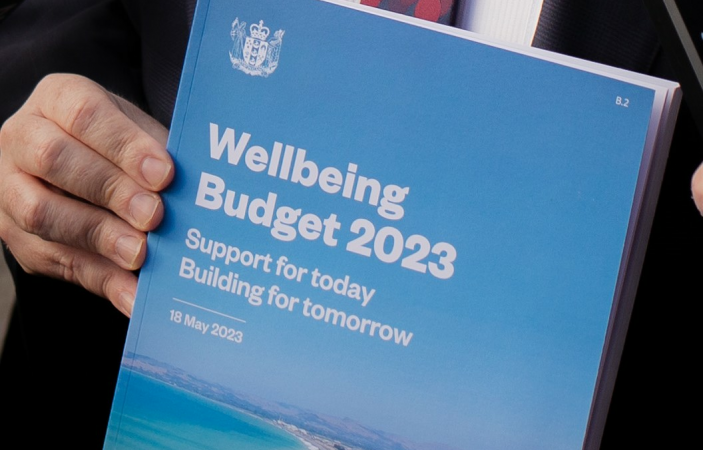
This is a subtitle for your new post
This year’s “no-frills” budget has spending across a variety of sectors with a focus on cyclone recovery, climate change and improving infrastructure.
Climate Change
Tackling climate change is a priority for this government. They’ve allocated $1.9b climate spending package overall (which is less than the past 2 budget’s) including $327m for free public transport from children under 13 and half price for those under 25. They’re expanding the Warmer Kiwi Homes programme to make warmer and drier homes - $400m, $50m for renewable energy projects in isolated communities, $30m over three years for clean heavy vehicle grants and $10.7m investment to reduce diesel generation and establish a renewable energy system on the Chatham Islands. They’re allocating $120m to expanding the infrastructure for charging EV’s to build 25 hubs around the country, with hubs every 150-200km on main highways and specifically in Tīrau, Tūrangi and Kaikōura.
Health
The $5 prescription charge will be removed, costing $706m over the next four years. There's $2.6b over the next two years for reforms and to ease the cost pressures in the health system as well as $864m for disability services. There’s $63m which allows for another 500 nurses to be employed, as part of $1b investment package that includes increased pay rates.
Education
As well as the $455.4m for new schools and classrooms which has already been announced, there’s $63.1m for property improvements to 175 more schools, focusing on small or isolated schools, $147m over two years for modifying school buildings, including automatic doors, lifts and bathroom refits. There’s also a boost in funding for the underfunded alternative education sector of $41.1m.
Families
$1.2b over four years, to extend the 20 hours free early childhood education to two-year-olds from March 1 2024. There’s nearly $20m for Kiwisaver payments to those receiving paid parental leave and for lower-income households, $323.4m to continue free lunches in schools.
Infrastructure
Allocation of $71b over five years for new and existing infrastructure projects.
Transport
The already mentioned public transport (free for under 13’s and half price for under 25’s), as well as a $279m investment in state highways focusing on slip prevention, flood mitigations and managing risk of sea level rise, $370m investment in rail infrastructure resilience and $167.4m for building resilience for future climate events.
Other notable areas
- $1b for Cyclone Recovery
- Lifting the trustee tax rate from 33% to 39%, to be in line with the highest personal tax rate
- $27.3m to end the minimum wage exemption for employing disabled workers and replacing it with a wage supplement
- A 20% rebate for video game developers, to allow the industry to keep up with Australian rebates
- $8.6b over the next five years, to top up the New Zealand superannuation fund
Navigation
Our Services

Your Virtual Marketer for the professional services industry
